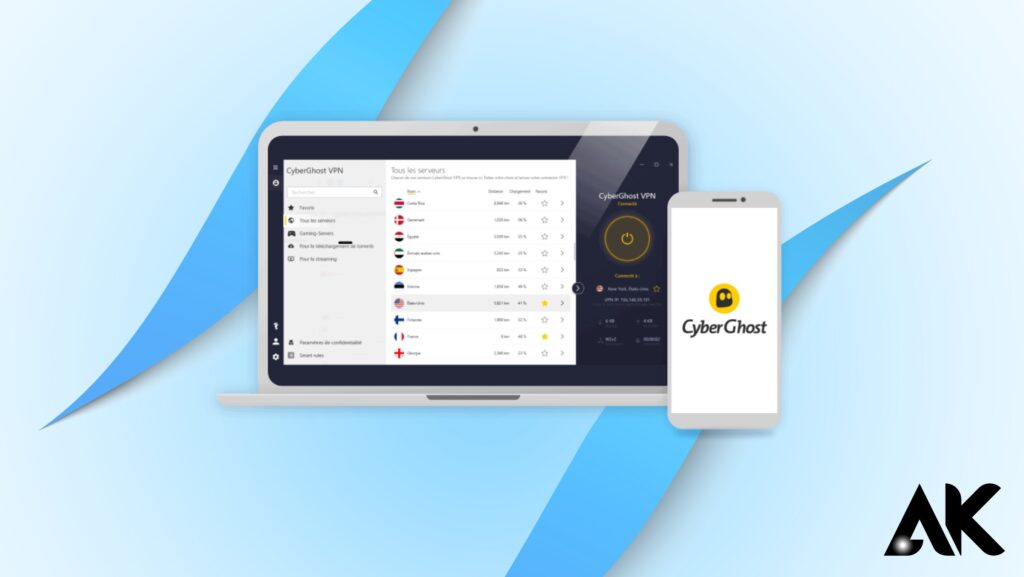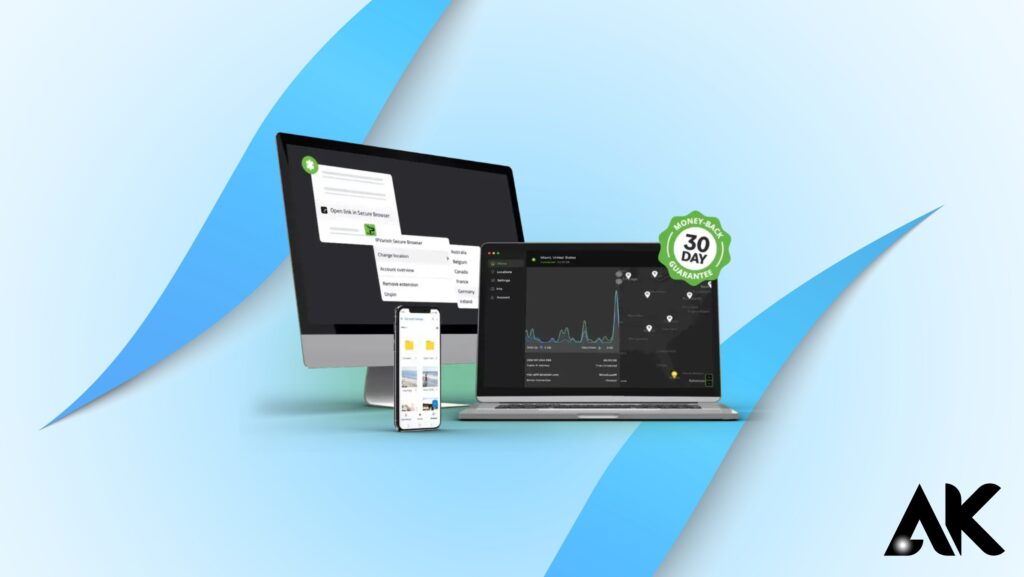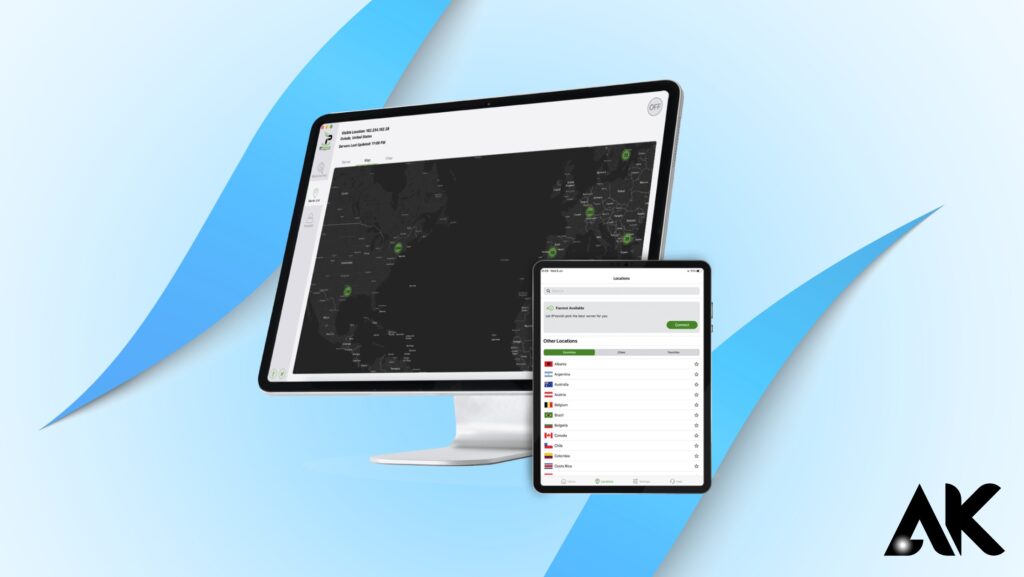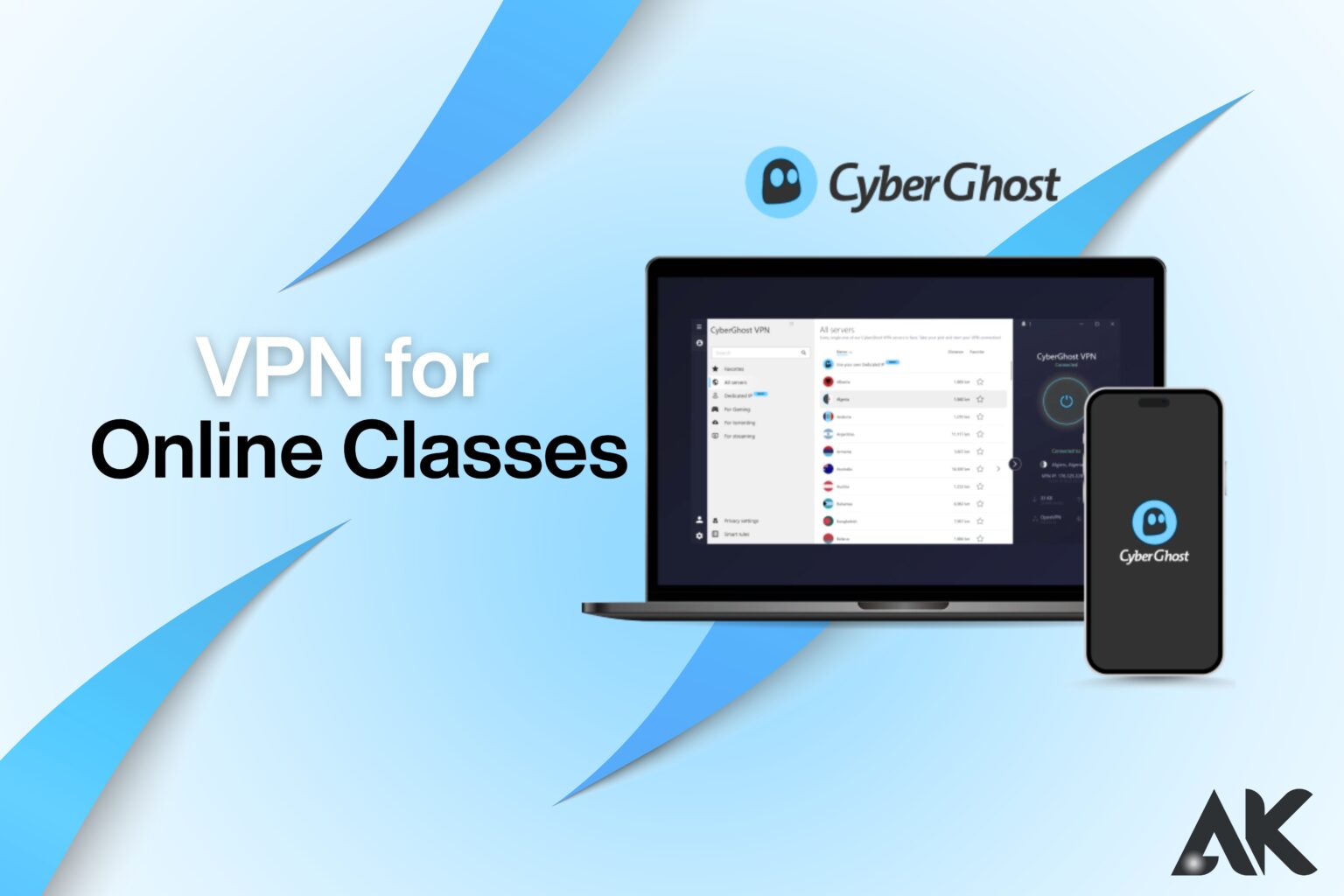Using a VPN for online courses Have you ever had trouble accessing resources or staying safe while taking online courses? With more digital schooling available than ever before, students frequently encounter problems with online learning resources. Navigating these digital hurdles is becoming more difficult, from insecure networks at home to banned websites on school Wi-Fi. A [VPN for online classrooms] becomes an essential remedy in this situation. However, how can you locate a trustworthy and cost-free one? And why is a VPN the best option for students?
Your study experience may significantly improve if you recognize the significance of safe and unfettered access to online learning. Using a VPN for online courses guarantees that your data remains private and that you don’t miss anything because of content limitations, whether you’re watching YouTube lectures, taking live Zoom seminars, or visiting online libraries. It’s time for everyone to have more flexibility, speed, and safety in their online education.
What Will You Learn From This Blog?
In this blog, you’ll discover the top 5 free options that work great as a VPN for online courses in 2025. We’ll cover key features, pros, and cons, and help you understand how each VPN can enhance your online study sessions. You’ll also learn how to use them effectively without getting into technical trouble.
By the end of this post, you’ll know exactly which VPN for online courses suits your specific learning environment. You’ll be more confident in protecting your data, accessing the content you need, and improving your overall online classroom experience.
Why Students Use VPNs for Online Learning

There are several reasons why students utilize aUsing a VPN for online courses particularly in places with restrictions, like colleges and universities. Firewalls in most educational institutions block social media, multimedia platforms, and even certain research websites. While the goal is to lessen distractions, it frequently stops students from using beneficial teaching resources. Students can access websites like YouTube, Wikipedia, and Google Scholar without limits by using a VPN to get around these barriers.
Another important consideration in students’ decision to use a VPN for online courses is safety. As more students study from home or use public Wi-Fi, there is a greater chance of information theft and attacks. By encrypting your internet traffic, VPNs almost eliminate the likelihood that hackers will be able to access your work, passwords, or personal information. In the linked world of today, it’s a vital tool for secure online education.
Supporting Point: Key Reasons Students Use VPNs
- Access blocked educational sites: Many schools block websites that are actually helpful for learning.
- Enhance privacy and security: A Using a VPN for online courses protects you from cyber threats on open networks.
Top 5 Free VPNs for Students

1. ProtonVPN—Unlimited Data for Students
Between free VPNs, ProtonVPN is one of the most reliable companies. Even in the free edition, it provides unlimited data for students searching for a virtual private network (VPN) for online classes, making it ideal for lengthy virtual lectures and intense research. ProtonVPN guarantees that data caps won’t interfere with your study sessions, in contrast to many other VPNs that do.
Pros:
- Unlimited data even on the free plan
- No logs policy ensures your activity stays private
- Strong encryption for secure browsing
Cons:
- Limited free server locations (only 3)
- Speed can vary during peak hours
A Using a VPN for online courses like ProtonVPN, is ideal for students who value privacy and need uninterrupted access to study resources without paying a fee.
2. Windscribe—Feature-Rich and Generous Data Limit
Another great [VPN for online courses] is Windscribe, which provides 10GB of free data each month. That covers several hours of study, video lessons, or online classes. Students may enjoy a clean browsing experience thanks to its several server options and integrated ad blocker.
Pros:
- 10GB monthly free data
- Wide range of server locations
- Extra features like ad and tracker blocking
Cons:
- Data limit may be too low for heavy users
- Speed may fluctuate depending on location
Windscribe is a smart choice for students who want to use a VPN for online courses that comes with advanced features without paying for a subscription.
3. Atlas VPN—Simple and Reliable for Beginners
Atlas VPN is an excellent choice if you’ve never used a VPN before. Setting it up is simple, and its free plan includes a few basic server locations. Atlas VPN offers just enough capabilities for students searching for a lightweight Using a VPN for online courses to protect their connection and unblock websites or study tools.
Pros:
- User-friendly interface for beginners
- Strong encryption and privacy settings
- Decent connection speed for most online class needs
Cons:
- Only a few servers available in the free plan
- Limited monthly data may affect long sessions
Atlas VPN works well as a simple VPN for online courses that protects your privacy while giving you access to restricted learning materials.
4. Hide.me—Secure and Fast with a Flexible Free Plan
A quick, safe, and adaptable choice for students seeking a Using a VPN for online courses is Hide.me. Its free edition offers five server locations and 10GB per month without requiring registration. It is excellent for online research and video conferencing, and it supports robust encryption mechanisms.
Pros:
- 10GB free data with fast speeds
- No registration required for the free plan
- High-level security for safe browsing
Cons:
- Limited data for frequent online class users
- Fewer customization features in the free version
Hide.me is perfect for students who want a hassle-free and secure Using a VPN for online courses experience without sharing personal details.
5. TunnelBear—Fun and Friendly VPN with Good Security
TunnelBear is well-known for its user-friendly layout and adorable bear-themed user interface. Younger students or novices looking for a simple [VPN for online classrooms] will find it ideal. Although the 500MB monthly allotment for the free plan might not be sufficient for typical coursework, it is ideal for conducting rapid research or gaining access to restricted material.
Pros:
- Beginner-friendly interface
- High-quality encryption even on the free plan
- Easy setup on multiple devices
Cons:
- Very limited monthly data (500MB)
- Not ideal for long study sessions or video classes
TunnelBear is best for students who need a simple and secure VPN for online courses for short or occasional use.
How to Use a VPN for Online Learning in 2025

Step 1: Select the Using a VPN for online courses that best suits your requirements first. Choose a plan with unlimited or higher data caps if you attend multiple classes each day. Install it on your primary study device after downloading it; this could be your smartphone, tablet, or laptop. To boost your speed and performance, select a server in the area and register if needed. With only a few clicks, many free VPNs, such as ProtonVPN or Windscribe, are simple to set up and use.
Step 2: Make sure the connection is active and turn on the VPN before attending your class. Check to see whether everything functions properly by opening your learning or video conferencing platform. Additionally, you might wish to try loading any websites that you were previously unable to access. You can get around these restrictions and have complete access if your school prohibits video platforms by using the Using a VPN for online courses. Additionally, since the majority of VPN services are only intended for safe and instructive purposes, refrain from utilizing them for illicit objectives.
Conclusion
It is now imperative—not optional—to use a Using a VPN for online courses in 2025. VPNs make sure you stay connected without compromising your privacy, whether you’re using online research tools, collaborating on group projects, or attending distant lectures. They also assist you in overcoming internet limitations set by the school and gaining access to additional study resources.
ProtonVPN’s unlimited data makes it stand out among the best free VPNs for students. While TunnelBear and Atlas VPN are easy-to-use options for novices, Windscribe and Hide.me are ideal for feature-rich experiences. Whichever Using a VPN for online courses you select, be sure it will support your daily learning schedule and protect your data. Your digital classroom may become a more secure and accessible environment for learning and growth if you have the correct tool.
FAQs
What makes a VPN for online classes necessary?
Students can access instructional platforms, video tutorials, and restricted websites that could be barred on school or university networks with the aid of a Using a VPN for online courses Additionally, it protects private information when studying at home or on public Wi-Fi. By encrypting your connection, a VPN lowers the likelihood that hackers may steal private data while you’re learning online.
Is using a VPN for online classes permitted?
Yes, using a Using a VPN for online courses is entirely legal in the majority of nations. However, if you use it to obtain unlawful content or circumvent licensing limitations, you may violate the terms of service. We permit and advise VPN use for educational objectives, like unblocking materials or protecting your internet, to foster a safer online learning environment.
What is the best free VPN for online classes? For streaming videos.
ProtonVPN is among the greatest options if you’re watching instructional videos on websites like YouTube or attending video lectures. Without charging, this Using a VPN for online courses provides good speeds, robust encryption, and limitless bandwidth. For students that require continuous access to streaming-based instruction, it’s perfect.
Does using a VPN for online classes slow down my internet speed?
Because of encryption and rerouting through secure servers, aUsing a VPN for online courses may cause a tiny decrease in your internet speed. Nevertheless, the best free VPNs, such as Windscribe or Hide.me, are designed to deliver consistent speeds, particularly when you connect to servers that are close by. During online classes, selecting the appropriate server can help minimize lag and buffering.

